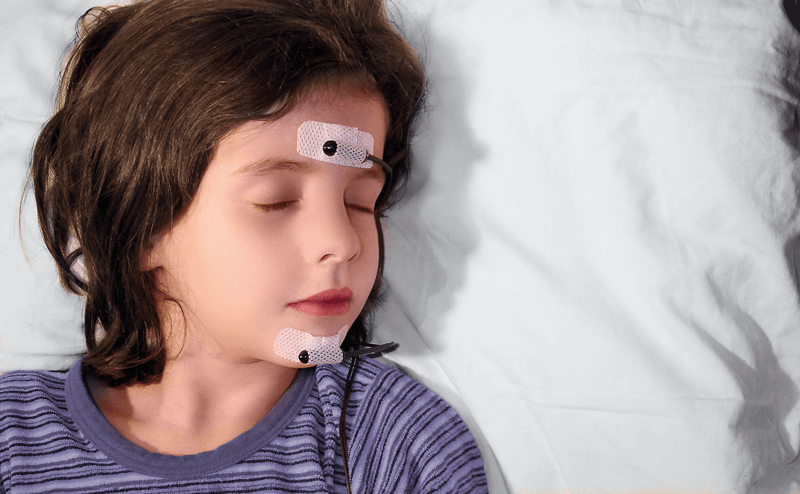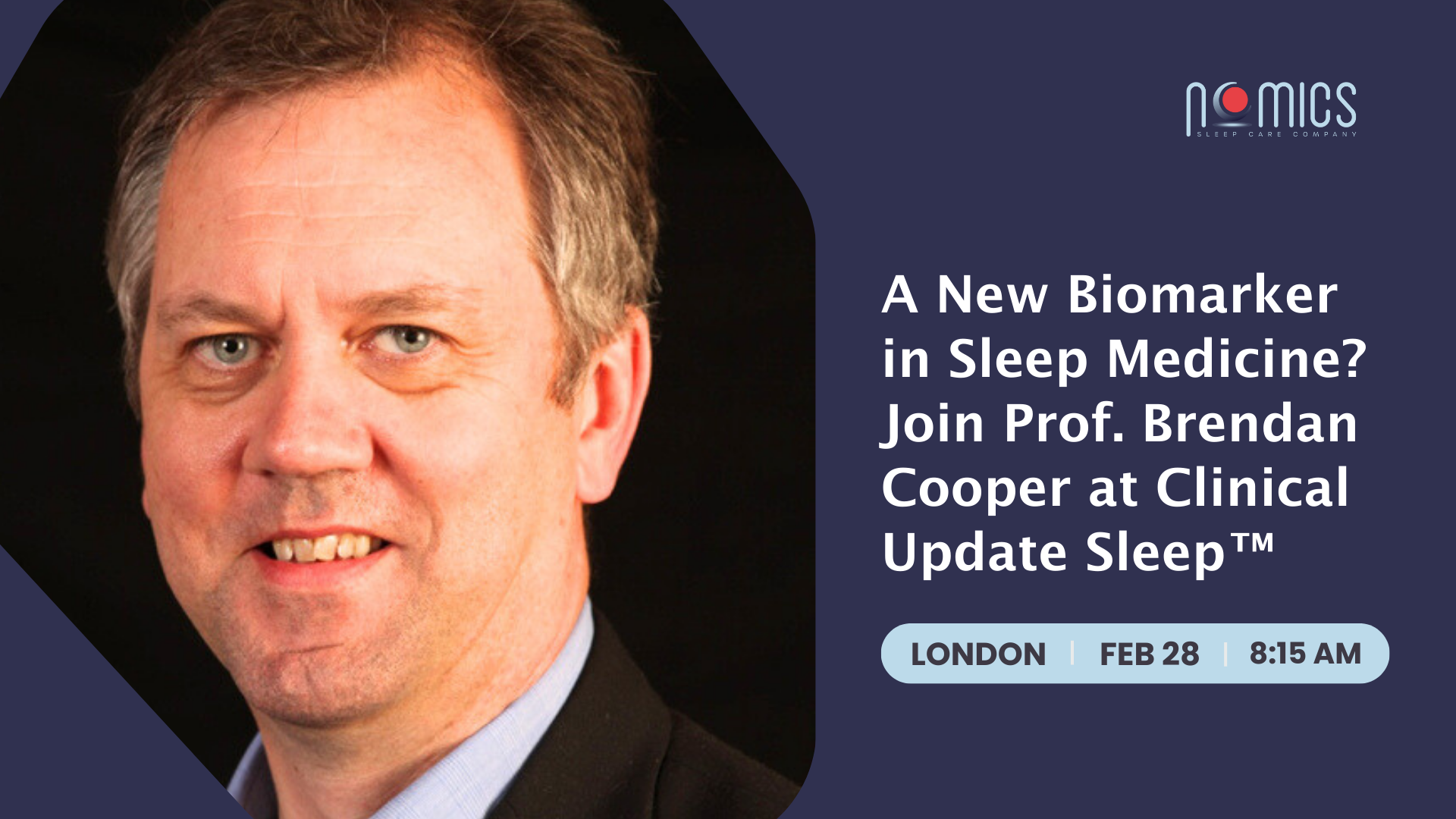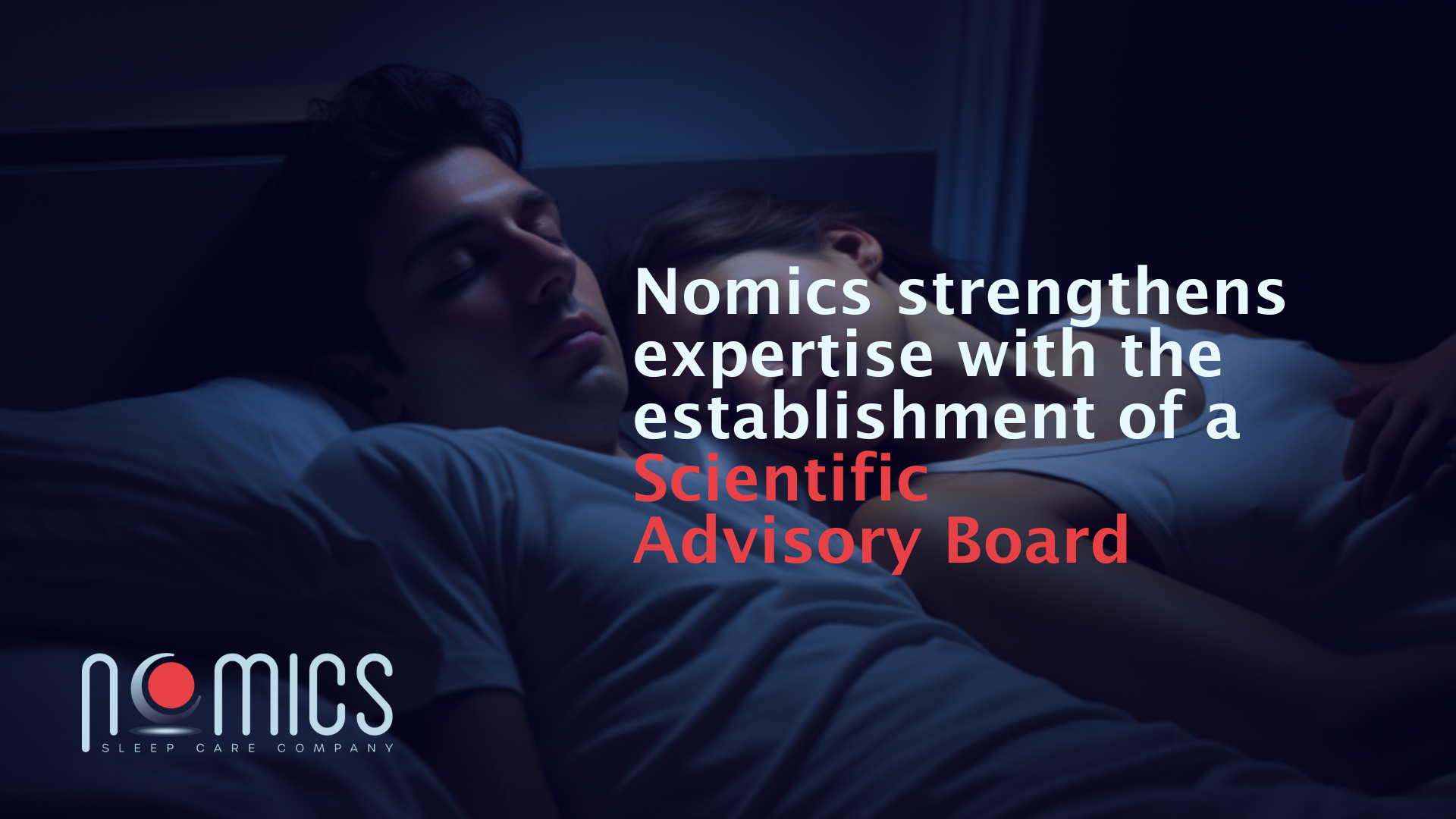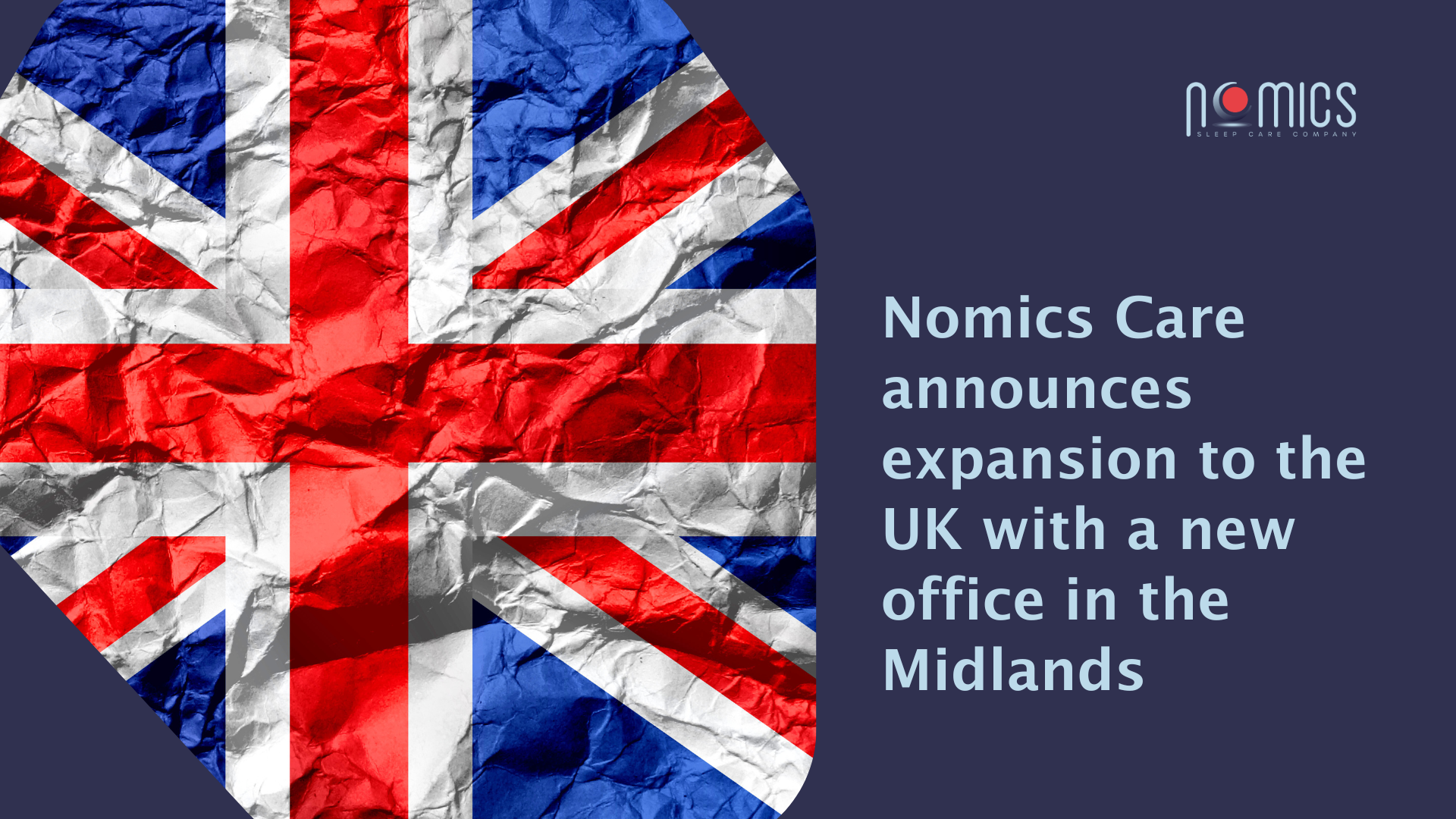A bite of the future – A new biomarker in sleep medicine?
Despite advancements in sleep medicine, many sleep disorders remain underdiagnosed due to the limitations of traditional respiratory polygra…
Sleep apnea is often associated with adults, particularly older individuals. However, this disorder can also affect children, with potentially serious consequences for their well-being and development.

In a recent video, Dr. Nicolas Stefenatto, medical advisor for Nomics, explores this topic.
According to the American Academy of Pediatrics, between 2% and nearly 6% of children suffer from sleep-related breathing disorders, including Obstructive Sleep Apnea-Hypopnea Syndrome (OSAHS). This figure may even be an underestimate, which should encourage doctors and parents to take this issue more seriously.
The consequences of these disorders on children are numerous. Lack of quality sleep can lead to learning difficulties, mood changes, and long-term complications such as hypertension, obesity, and Attention Deficit Hyperactivity Disorder (ADHD).
Diagnosing sleep-related breathing disorders and sleep apnea in children remains a challenge. Although laboratory polysomnography is considered the gold standard, it has limitations. Notably, it can be difficult to administer, especially for young children.
As a result, at-home ambulatory tests, like those offered by Nomics, are gaining popularity. They are more convenient and adapted to the child's natural environment.
Symptoms such as night terrors, learning difficulties, bed-wetting, and mouth breathing are key indicators. Mouth breathing, in particular, can be an important warning sign, as it should not normally occur during healthy sleep.
One of the most promising advancements in this field is JAWAC technology. This technology studies jaw activity during sleep, allowing for accurate assessment of mouth breathing. It is non-invasive and easy to use, making it particularly suitable for children. Moreover, it can be helpful in evaluating the effectiveness of postoperative treatments such as adenotonsillectomy.
As a general practitioner, you are often the first point of contact for families facing these issues. Your role in identifying these disorders and directing them to the appropriate specialist for adequate treatment of these young patients is therefore crucial.
For more information on how Nomics tests can assist in screening and diagnosing sleep-related breathing disorders in children, please feel free to contact us.
These articles might interest you

Despite advancements in sleep medicine, many sleep disorders remain underdiagnosed due to the limitations of traditional respiratory polygra…

Nomics is proud to announce the formation of its multidisciplinary Scientific Advisory Board, comprising distinguished professors and doctor…

Today, Nomics Care, a Belgian MedTech company, announced the expansion of its operations into the Midlands, UK.